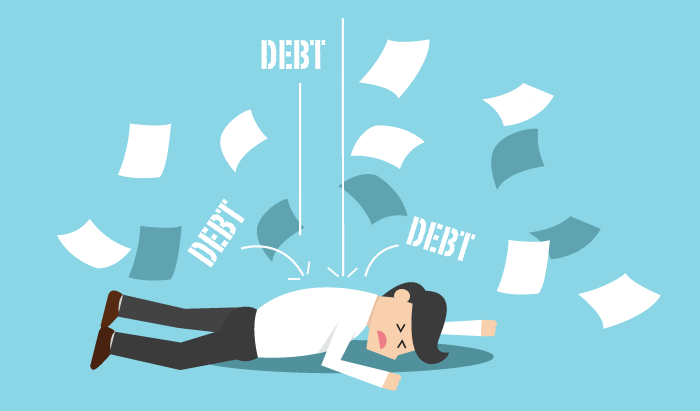








Debt Stress Syndrome
Unemployment rates are currently dropping as the economy is slowly recovering from one of the most challenging times in history. Most Americans are running out of stimulus check money and getting back into debt. Statistics say that average American households have at least one debt of $150,000 or higher. 90% of citizens report stressing out about debt. So many people relate to the issue that the phenomenon got a name: debt stress syndrome. The impact goes beyond mental health consequences, such as irritability and anxiety, being accountable for raised blood pressure, diabetes, and heart disease.

Psychologists say that worrying about debt takes over one's thoughts. When we stress out about something, the brain focuses all its efforts on solving the problem. Thus, we become obsessed with the issues we are facing. As an effect, our capacity to concentrate on anything else, such as our jobs or family matters, diminishes significantly. That is why many people who have debts experience fatigue and feel depleted of cognitive resources. From that point on, becoming clinically depressed is very easy. The most alarming aspect of the matter is that not many people can identify the symptoms.
Financial therapists advise their customers to learn to live with the brain's background noise in stressful situations. After all, there is not much one can do about long-term debt other than repaying it one month at a time. Professionals share special techniques that help borrowers prevent more severe consequences:
- Accept the fact that you are in debt. Denying the matter is highly detrimental for the brain, although it provides temporary relief. Consolidating debt also works as a short-term stress-alleviation technique. As soon as they realize that their debt-to-income ratio is not in their favor, depression sets in.
- Take accountability. There is no shame in being in debt. Even millionaires admit they had had at least three different situations when they were in debt, or financial difficulties got the best of them. Professionals recommend you take responsibility for your actions and admit to yourself that you got into debt because of your choices. Taking the blame is a big step toward getting out of debt and improving your financial stability.
- Get professional help. A qualified financial advisor will help you analyze your bills, income, and debts to create a sound repayment plan. You will gain a lot from investing in your financial literacy and learn to set up strategic plans to avoid debt or deal with it.
- Accept that the worst-case scenario is not that bad. Many Americans think of debt as the worst thing that can happen to them. Experts say that is far from being true. Filing for bankruptcy can be a rational business decision, and many people go through the experience on several occasions in their lifetime.
An issue that needs to be touched upon is misinformation, which adds to the financial insecurity and instills widespread panic. Recent reports show that the lack of financial uncertainty has a negative outcome on health insurance and medicare. It's a vicious cycle that revolves around a lack of knowledge and information. Dealing with debt stress syndrome is a matter of finding the proper support mechanisms. If you or someone you know is fighting addiction because of debt or other reasons, ask for help. Amethyst has an amazing support staff that treats patients with empathy and professionalism.
